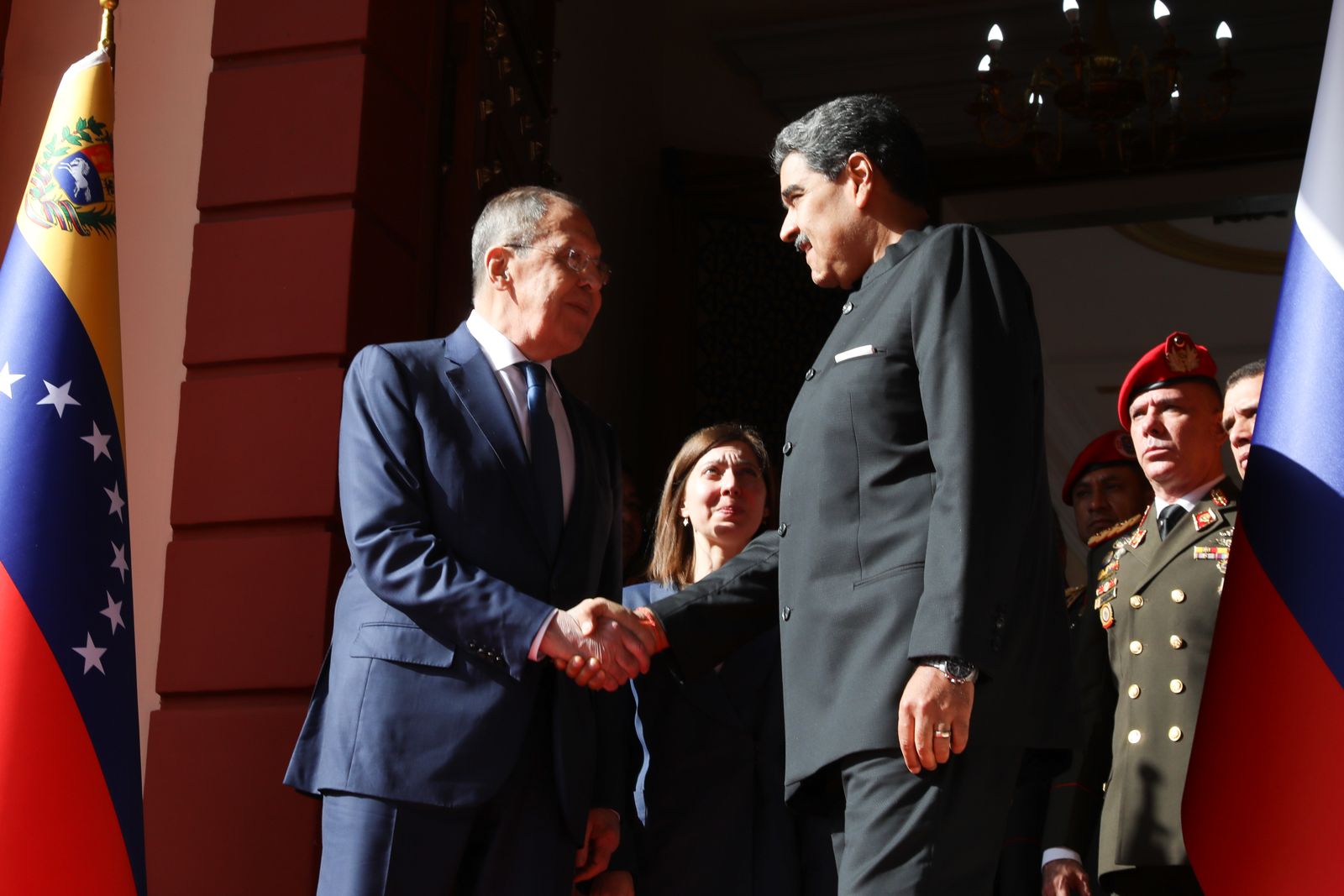Sergey Lavrov, Russia’s Foreign Minister, visited Caracas recently, during which he denounced ‘external interference’ in the territorial controversy between Guyana and Venezuela.
“It is unacceptable to interfere in the internal affairs of Venezuela and any other country, in the problems that arise in relations between any two states,” Lavrov said during a Feb. 20 joint news conference with his Venezuela counterpart, Yvan Gil.
He had been asked how he views recent statements by ‘third countries’ on the matter in spite of Russia’s call for non-interference. Guyana has been working with its allies from the United States, the United Kingdom, France, and the Caribbean Community (CARICOM) to ensure security in the region in the wake of recent tensions. Several of those countries have been vocal about their support for Guyana.
Lavrov said, “The position of Venezuelan President Nicolas Maduro and his government is to engage in dialogue. A meeting of the foreign ministers was held, negotiations between the presidents of the two countries are being prepared. Each side has its own position.”
Lavrov added that there is a “well-known point of view” contained in the “conclusions” of the International Court of Justice (ICJ), which he did not recall – only noting that it was discussed earlier that day.
The controversy revolves around the 1899 Arbitral Award which settled the border between the two nations. Venezuela accepted this as the final settlement at the time and even sent its technical officials to help demarcate the boundary that the Tribunal laid down. Then, suddenly in 1962, Venezuela claimed that the Award was null and void.
The matter was referred to the ICJ in 2018 by the Secretary General of the United Nations, Antonio Guterres. This move is in keeping with terms outlined in the 1966 Geneva Agreement, a document established to resolve the controversy through dialogue. It was after decades of failed talks between the two sides, that the UN Secretary-General referred the matter to the World Court.
The ICJ has ruled that it has jurisdiction to settle the controversy and has issued provisional measures instructing Venezuela not to exacerbate the situation, including through attempts to modify Guyana’s control of the territory.
Guyana maintains that the ICJ is the only means by which the border controversy can be settled.




